Weather on the spot: Amherst Regional’s Computer Science Club installs new station atop football field’s press box
| Published: 03-27-2025 3:01 PM |
AMHERST — At Ella Wang’s former middle school, a device would take regular readings of wind speed, precipitation, temperature and humidity — all information that would be useful to her and her teammates before Amherst Regional High School’s girls cross country meets.
“It’s so nice to get accurate weather conditions, especially on really hot days,” says Wang, a high school sophomore.
As co-president of the school’s Computer Science Club, she also appreciates what collecting data about local weather can mean.
“It was such a cool setup there, and you can learn so much from a weather station,” Wang said.
On Monday afternoon, Wang and Delany Cheng, a junior who is also co-president of the club, were joined by other members of the club to assemble the school’s first weather station and get it in place on what they were calling “Build Day.”
Spending about 2½ hours, the students first put together the device in the classroom and then, using wrenches, screwdrivers and other tools, they went outside to position the weather station — balanced on a tripod set on a wooden base with concrete blocks — on the top, open-air deck of the football field’s press box.
The site was identified as within reasonable proximity to the school and its classrooms.
Among those helping out was Raphael Wise, a sophomore and self-described techie and assembly person, who said it was important to participate.
Article continues after...
Yesterday's Most Read Articles
With a console and wireless transmitter, the device will begin providing accurate readings from the location.
The weather station is the biggest project this school year for the club, made up of mostly ninth through 11th graders, with one senior, that typically meets once a week during the 50-minute Flex block at the end of the school day. Other projects underway include creating a presentation and mini lesson focused on cybersecurity computer information for residents at The Arbors, the assisted living facility on University Drive, and creating their own “Block Game,” a Tetris-like computer game.
Faculty adviser Ling Xue, who teaches computer science at the school, said the students began research in September, needing to identify the weather station they wanted and could afford, and eventually settled on the Vantage Vue Wireless, made by Davis Instruments, based in Hayward, California, that has a solar panel, wind cups, a radiation shield, a tipping spoon, rain collector, debris screen and wind vane.
Needing $600, the students made their appeal online.
“Our main method of fundraising is GoFundMe and community donations,” Cheng said.
The schools parent-guardian organization also publicized the fundraiser, which states the club will “host tours with the younger students around the station, and investigate weather trends with climate change and extreme weather.”
The students reached out to Home Depot for a donation of the wood and concrete blocks.
Xue said the project also depended on the support of Talib Sadiq, the high school principal, and town officials, since the small building is on town property. “They needed to approve our use of the press box,” Xue said.
Xue added she appreciates that the club is multicultural and has female co-presidents, when there often is a lack of representation in science, technology, engineering and mathematics, or STEM, fields.
Collecting more than $800, they have $100 left over, which the club will use for maintenance and covering the costs of any outstanding issues.
Information from the database will also go to the National Weather Service as part of its citizen weather program, and the students are building connections with the Hitchcock Center for the Environment and its participation in the regional air quality program, possibly being a site for one of those sensors.
Cheng said that even during the summer, when school is not in session, and on school breaks, data will continue to come in and be stored on a computer. “Our hope is to collect data 365 days a year,” Cheng said.
In addition to fitting in with the school curriculum, Wang expects that club members may have an opportunity to investigate weather patterns and see climate change unfold.
“We hope to use the data to analyze climate trends over the year,” Wang said.
Scott Merzbach can be reached at smerzbach@gazettenet.com.

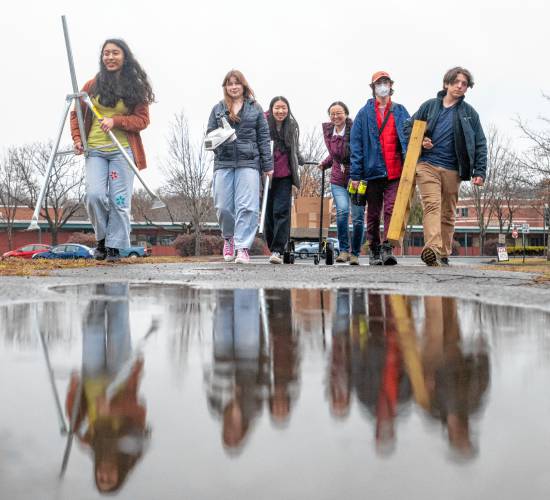
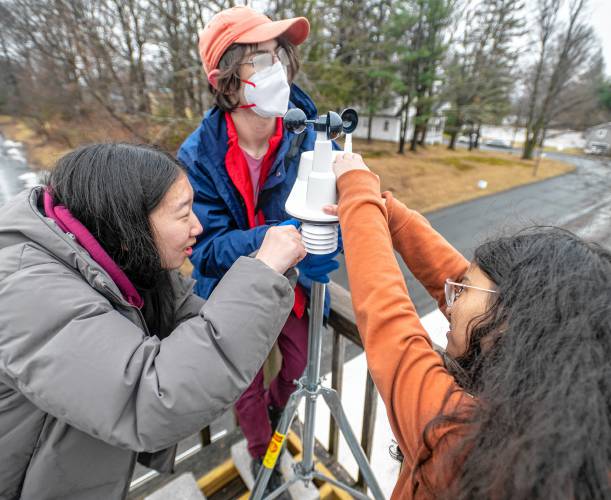
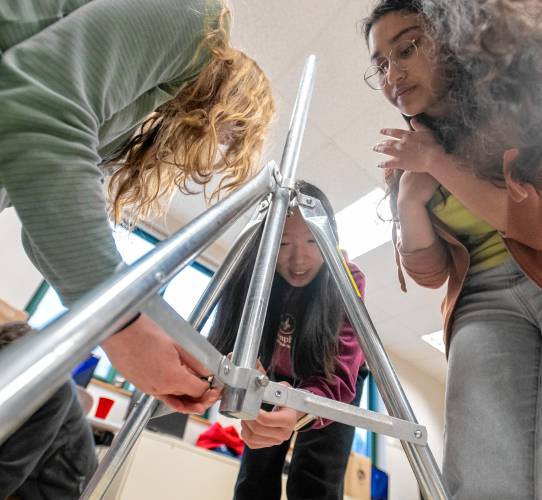
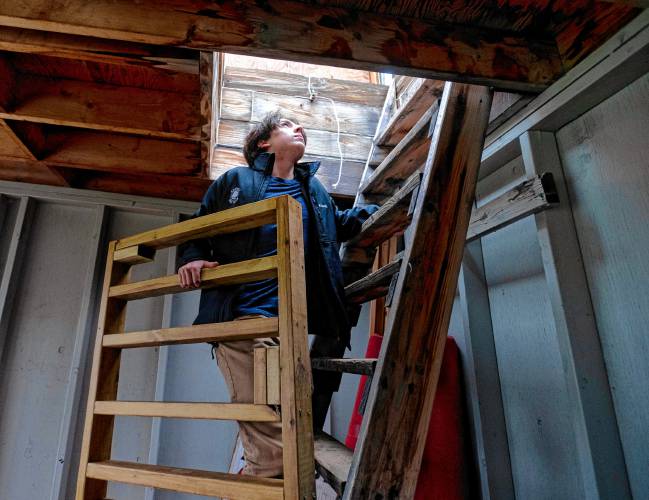
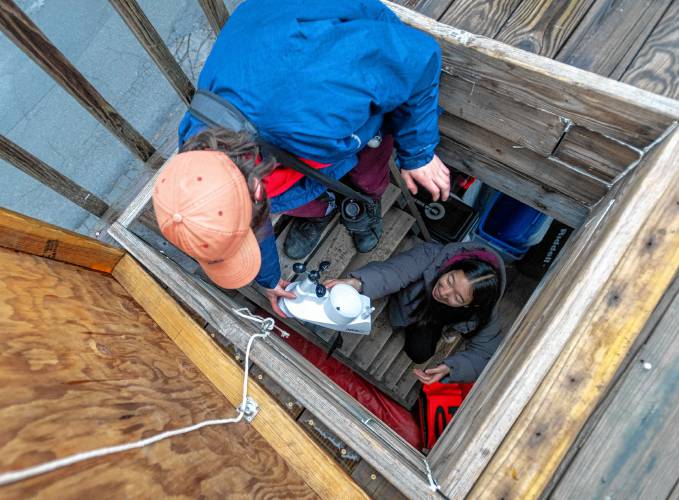
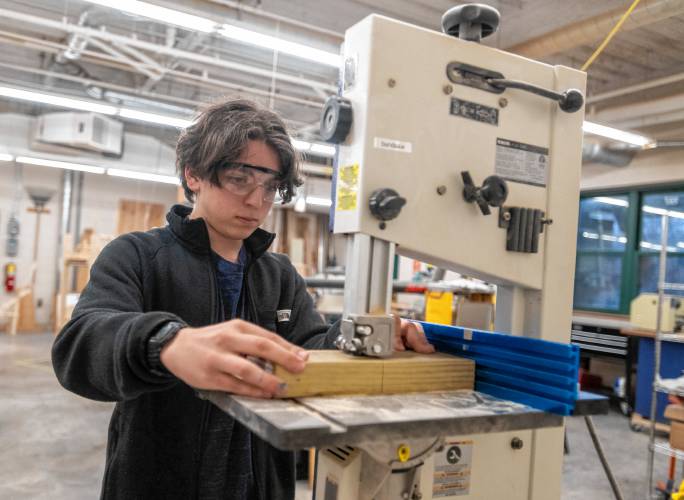
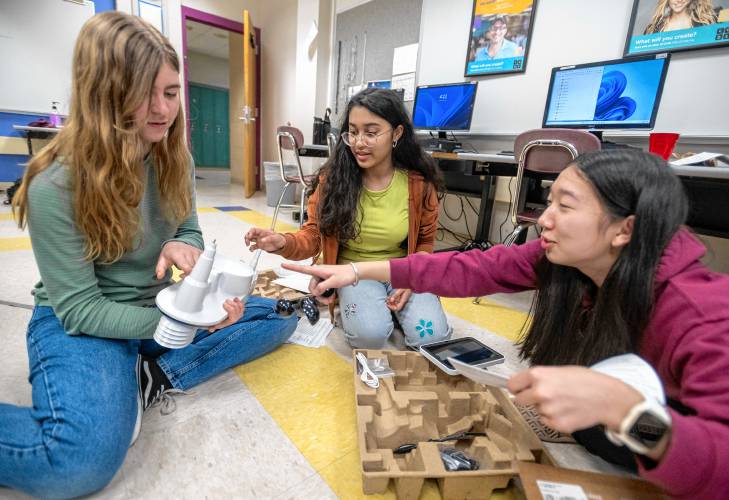
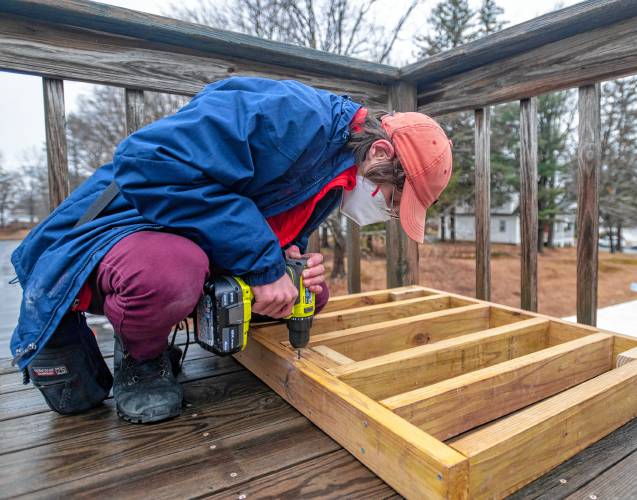
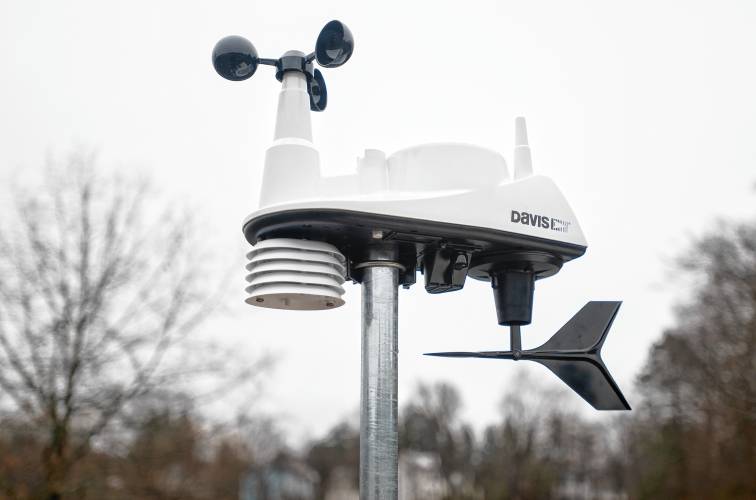
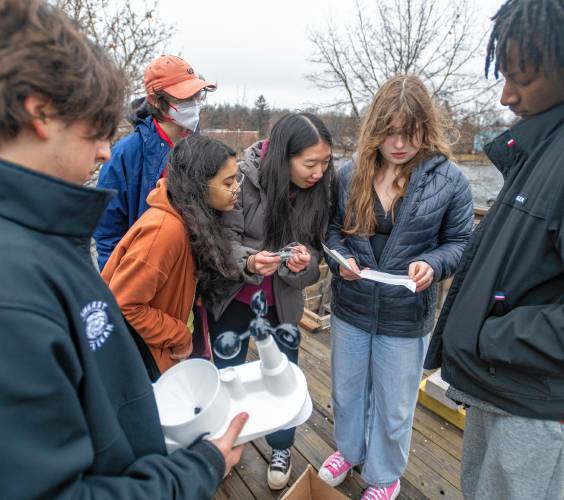





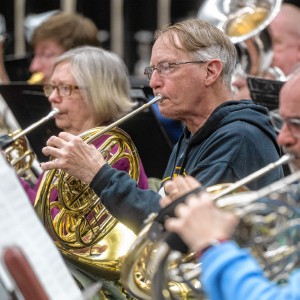 ‘For the love of music’: Florence Community Band set to hold first-ever multigenerational concert
‘For the love of music’: Florence Community Band set to hold first-ever multigenerational concert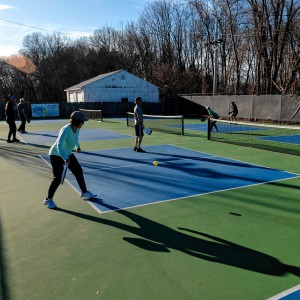 South Hadley ready for next round of Buttery Brook improvements
South Hadley ready for next round of Buttery Brook improvements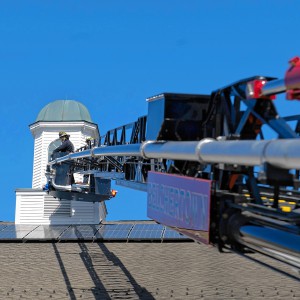 Photo: Ladder precision
Photo: Ladder precision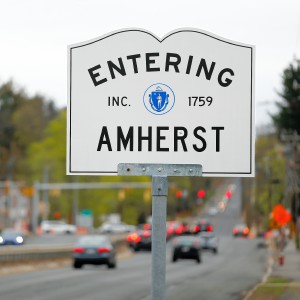 Amherst council likes proposed U-Drive overlay, vote set for April 7
Amherst council likes proposed U-Drive overlay, vote set for April 7
